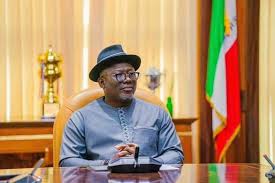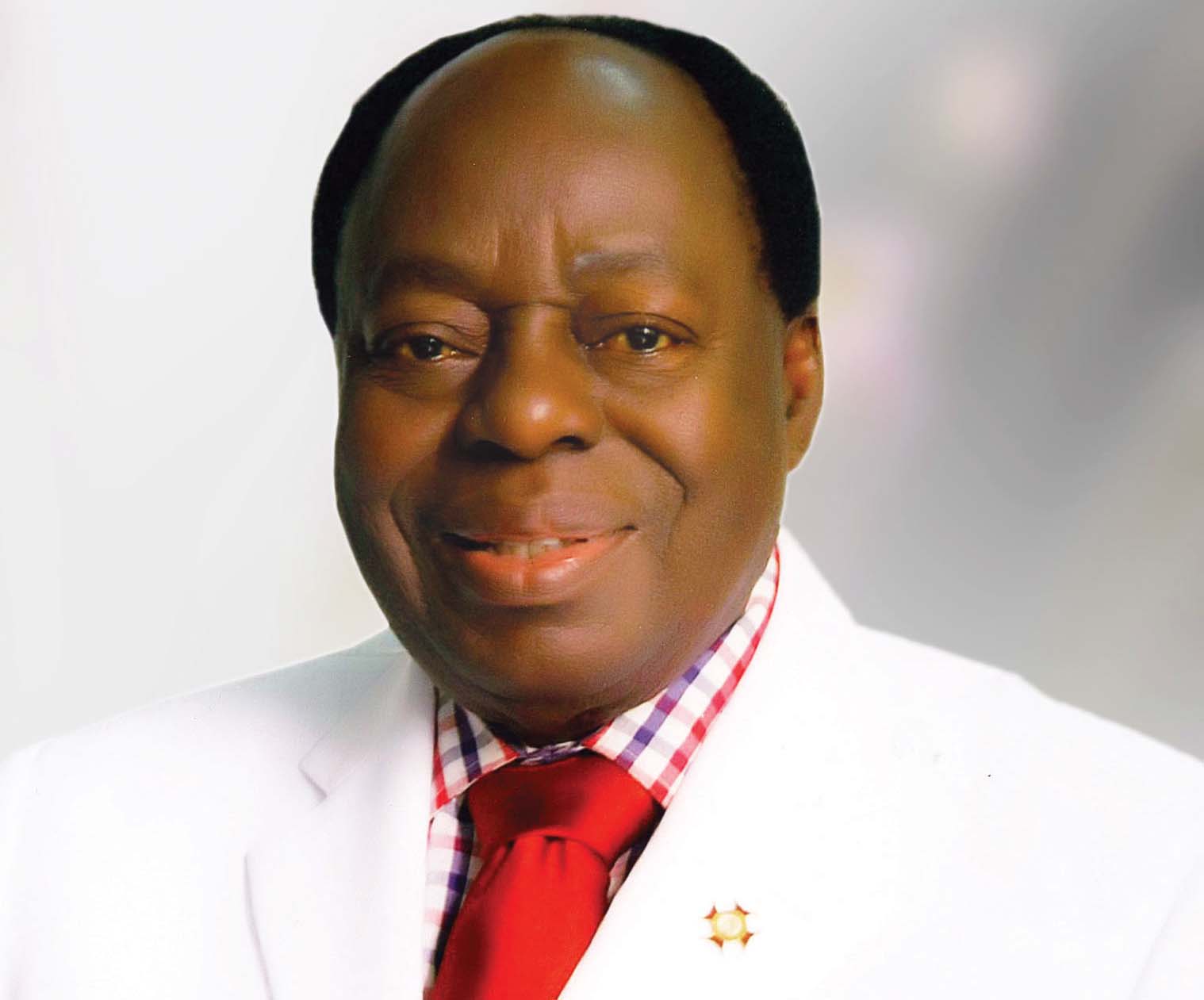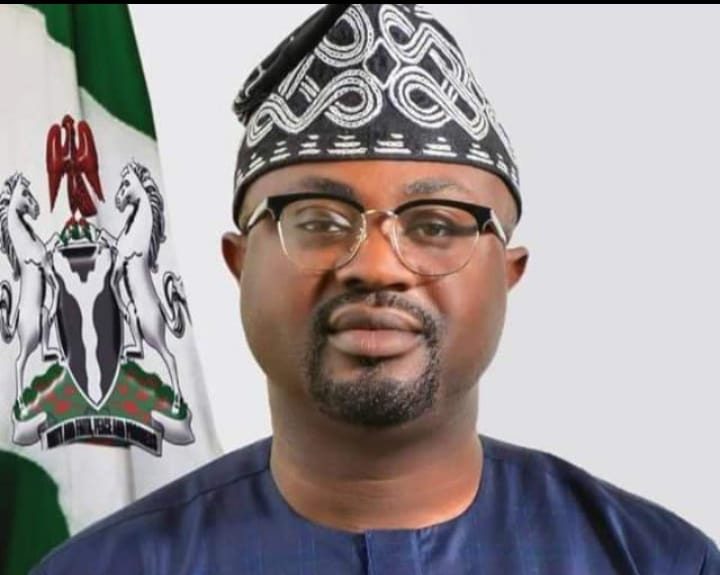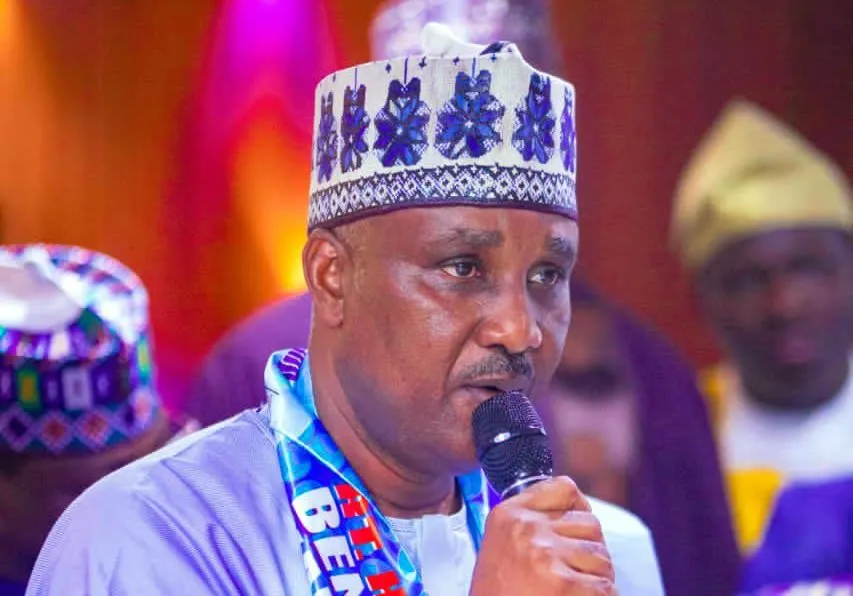Headlines
Buhari Seeks Lawmakers’ Assurances to Amend Clause 84,and May Sign Electoral Bill on Monday
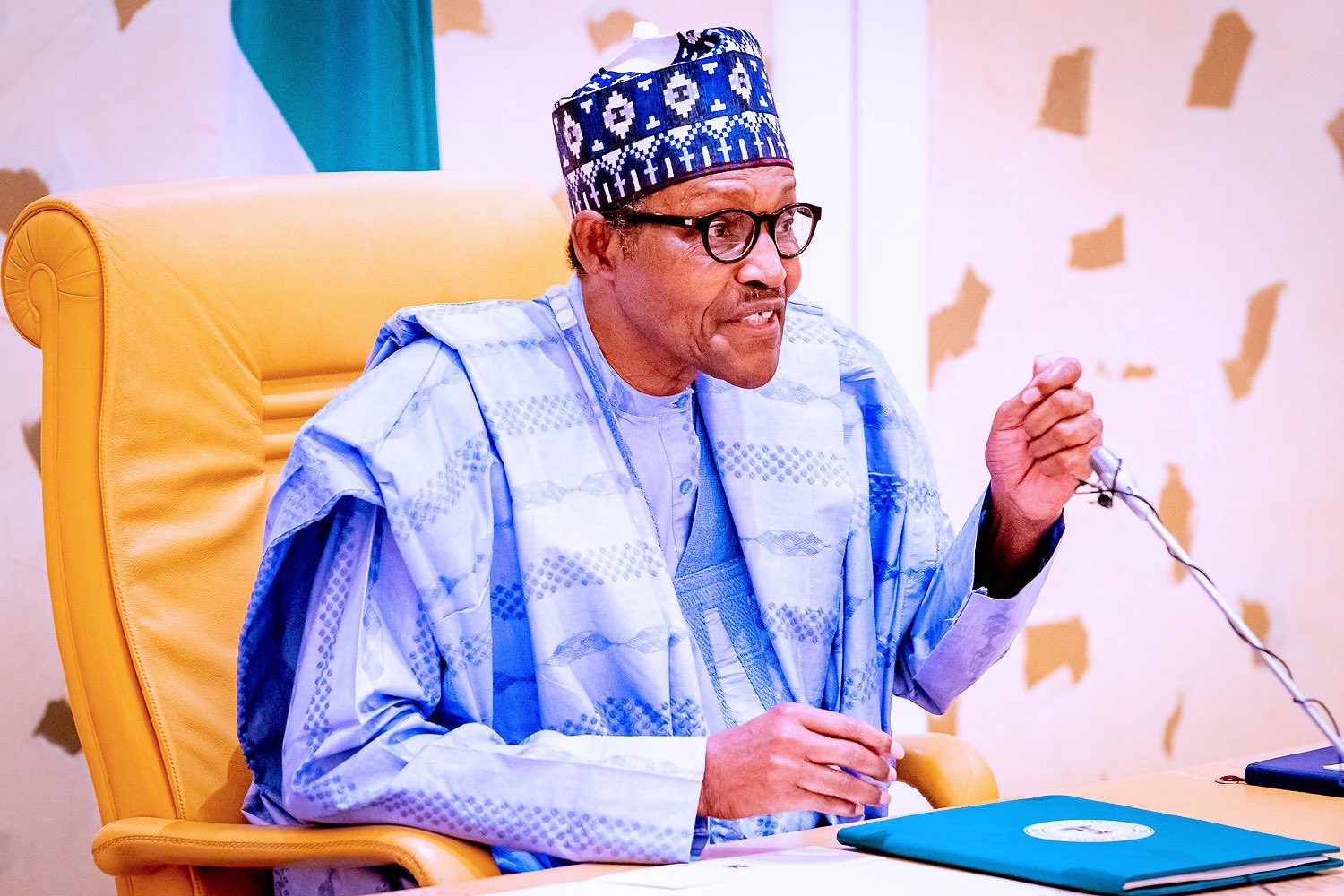
By Derrick Bangura.
If all other factors remain equal, President Muhammadu Buhari has agreed to sign the rewritten Electoral Act Amendment Bill and may do so on Monday, but only if the National Assembly amends the disputed Clause 84, which infringes on the constitutional rights of some groups of people. After assenting to the controversial component, political appointees are barred from winning elections and voting as delegates at conventions or congresses.
The president, who had already met with the leaders of the two houses of the National Assembly, was waiting for guarantees from the National Assembly leadership that the bill would be amended after it was signed into law. “The President wants to put this behind us, but he just needs assurances so that it doesn’t become a distraction for the country.” He doesn’t want the bill’s other positive parts to be jeopardized.”
In addition, the president is scheduled to meet with governors elected on the ruling All Progressives Congress (APC) platform tomorrow at the State House in Abuja to address concerns about the party’s proposed national convention on February 26.
But that won’t happen until the APC governors meet tonight in Abuja to take a final look at the situation and concerns surrounding the convention before meeting with the president tomorrow and making a decision.
Buhari decided to put the difficulties stalling the Electoral Act Amendment Bill to rest last night when he took the initiative and met with the National Assembly leadership in the hopes of reaching a compromise and concluding the deal.
The president is alleged to have met with the House of Representatives’ Deputy Speaker, Hon. Ahmed Idris Wase, and the Senate’s Deputy President, Ovie Omo-Agege, who is the Chairman of the amendment committee, deputized by Wase, to discuss how to address the contentious Clause 84 of the new amendment.
According to sources, the president had simply asked if they would be ready to remove the contentious component after he signed the bill, in order to cleanse the political landscape of the electoral bill conflict. According to a source familiar with the conversation, the president is seeking assurances that the aspect of the bill that infringes on Nigerians’ constitutional rights will be brought into compliance with the constitution through an amendment after he signs it, avoiding further delays in the bill’s implementation.
But as at last night, THISDAY could not glean from the leadership of the National Assembly if they had agreed to the president’s proposal, but feelers from the Villa, indicated that once the Buhari gets the assurance of the the legislative leadership to address the grey area, he would move swiftly to sign the bill, possibly today.
There had been misgivings about the new amendment, which had also fuelled speculations on whether or not the president would sign it into law.
The latest speculation was stoked by rumours that some governors, especially, those of the ruling APC, were not comfortable with the new amendment and had planned to prevail on the president to also veto it, as he did in the last one.
This is because the harmonised version of the Electoral Bill recently passed by the legislature and considered the final agreed version by both Senate and House of Representatives, had inserted a controversial Clause 84 into the amendment bill.
The implication of the Clause 84 was that all political appointees in President Buhari’s government would no longer be eligible, either as voting delegates or aspirants during the conventions or congresses of their political parties.
Also, by the provision at issue, political appointees were further barred from voting as delegates in a convention or seeking nomination in the primaries of their political parties.
Unlike what was obtainable in the past, when most APC ministers and commissioners took leave of absence to contest their party’s primaries and later went back to their jobs after they lost, that grace was no longer available with the new proposal.
According to Clause 84 of the recommitted bill, “No political appointee at any level shall be a voting delegate or be voted for at the convention or congress of any political party for the purpose of the nomination of candidates for any election.
“Where a political party fails to comply with the provisions of this Act in the conduct of its primaries, its candidate for election shall not be included in the election for the particular position in issue.
“Notwithstanding the provisions of this Act or rules of a political party, an aspirant, who complains that any of the provisions of this Act and guidelines of a political party have not been complied with in the selection or nomination of a candidate of a political party for election, may apply to the Federal High Court for redress.
“Nothing in this section shall empower the courts to stop the holding of primaries or general election under this Act, pending the determination of a suit.”
Unfortunately, there was a lacuna in the new law, which encouraged infringements on the inalienable rights of citizens to vie for elective offices.
The Supreme Court had pronounced at different times that any law inconsistent with the provisions of the constitution is ultra vires and, to that extent, null and void.
Sources, however, believed that the clause was meant to clip the wings of the governors, who, through appointments, often controlled those who became automatic delegates and determined the outcome of congresses.
Sources further claimed that the idea was originally from the House of Representatives, pushed by a principal officer from Lagos as an agenda to serve some interests. The Senate was said to have concurred, just to keep the “one house” impression by the National Assembly.
But the fear being expressed by many was that, with a clause that clearly breached the provision of the constitution, the president might be forced to veto the electoral act amendment bill again, and that if that happened, a new electoral law might not be ready for the 2023 elections, hence the new rapprochement by the president.
Buhari had declined assent to the first amendment bill over the provision of direct primary as the only mode of choosing candidates by political parties.
The bill earlier passed by the National Assembly on November 18, 2021, provided: “A political party seeking to nominate candidates for elections under this bill shall hold direct primaries for aspirants to all elective positions, which shall be monitored by the commission.”
But Buhari, in declining assent, disclosed that he would only give assent to the bill if the lawmakers provided options for the conduct of primaries by political parties.
The president also cited several disadvantages of the provision to the system, including security and possible manipulation by incumbent officeholders, who might be seeking re-election, as well as political parties’ inability to muster funds for it.
However, the president’s meeting with governors over the national convention on Tuesday was initially scheduled to hold last Tuesday but was called off shortly before the president proceeded on a four-day official visit to Brussels, Belgium, to attend the EU-AU Summit.
Sources told THISDAY at the weekend that the rescheduled meeting, which is at the instance of President Buhari, is to look at the national convention of the party fixed for Saturday, February 26, 2022.
Some stakeholders have been pushing for a postponement of the convention citing logistical challenges and planning issues. They pointed out that the February 26 date was no longer feasible. Ultimately however it is the President’s decision to make whether to go ahead or not. And as of Monday early morning, he had not made that call.
The meeting with the President, which will be led by the Chairman of the Interim Committee of the party and Governor of Yobe State, Mai Mala Buni, with 20 other APC Governors in attendance, would now table another possible date and other logistics for approval by President Buhari.
The interim leadership of the party was said to be pushing for the convention to be moved by two weeks to mid-March but it will have to seek the approval of President Buhari in his capacity as the National leader of the APC.
This was the same step Buni-led interim committee took last December when it approached the President to approve the February 26 date, which President Buhari gladly did.
The same scenario may play out as the President might accede to the extension of the date for the convention being proposed by some of the party leaders.
Worried by the turn of events over the national convention of APC, governors elected on the platform of the party are billed to meet Monday night in Abuja, to take a final stand on the matter as well as decide whether to go ahead or shift the date of the convention.
Some of the governors, whom THISDAY gathered were unhappy with both the president and party leadership, hinted that the meeting tonight would be the final one on the convention and that the outcome may be unpleasant as a majority of them were ready to go all out.
Party sources, who also hinted at some of the happenings in the APC, however, pointed at the Imo State Governor, Uzodinma and his Kogi State counterpart, Yahaya Bello, as the arrowheads of those pushing for a postponement of the convention.
According to party sources, the duo of Uzodinma and Bello, were the ones orchestrating the postponement, because they were said to be comfortable with the current caretaker committee through whom they’ve been able to push many agenda and were therefore striving hard to ensure they stall the convention.
“Isn’t it unfortunate that people, who had no idea how this party came about are the ones causing the current commotion in our party? Can you imagine Hope and Bello holding the party to ransom over completely self-serving reasons, which do not even align with collective interest.
“I hope the meeting of the governors tonight is not going to be where they would throw it all out through the window, because this is absolutely ridiculous. What is the sense in the postponement of the convention, when we can actually tidy up everything in two or three days?
“Really, what do we need to get this done? With a unity list, the convention would be over in no time, because we’d be going only to ratify the list. So, why stall the entire party and by extension the country?
“Why is the chairman acting as if he is not in charge? The whole thing is just disappointing and honestly, I’m ashamed how the governors allowed two people without a stake in the party to drive them to this shameful station,” said the party source.
Already, many stakeholders of the APC had claimed that except the president said otherwise, the proposed national convention of the party was unlikely.
THISDAY further gathered at the weekend that although some members of the party, who were opposed to the convention holding as scheduled, had begun to shop for an injunction to stop the exercise, the caretaker committee leadership of the party was also ready to go ahead with convention plans nonetheless.
This is as the youths of the party, under the aegis of Progressive Youth Movement (PYM), had declared their readiness for the APC national convention on February 26, if the caretaker committee could not carry out the task.
At the same time, other party stakeholders identified a few of the factors they believe should govern the selection of the new party chairman, including a corruption-free candidate who has never been charged by any anti-corruption agency.
With the convention unlikely to convene again, THISDAY learned that the only person who could have allowed the activity to continue or be postponed at this point was President Buhari, who, unfortunately, has stayed silent about it till the Tuesday meeting.
While some members of the party have expressed concerns about the level of preparation for the convention, which is set to take place this weekend, including the zoning of offices and the sales of nomination forms that have yet to begin, THISDAY has learned that all of these issues will be resolved quickly once Buhari issues a directive on the convention.
Headlines
Noble Ladies Champion Women’s Financial Independence at Grand Inauguration in Abuja

Women from diverse backgrounds across Nigeria and beyond gathered at the Art and Culture Auditorium, Abuja, for the inauguration and convention of the Noble Ladies Association. The event, led by the association’s Founder and “visionary and polished Queen Mother,” Mrs. Margaret Chigozie Mkpuma, was a colourful display of feminine elegance, empowerment, and ambition.
The highly anticipated gathering, attended by over 700 members and counting, reflected the association’s mission to help women realise their potential while shifting mindsets away from dependency and over-glamorization of the ‘white collar job.’ According to the group, progress can be better achieved through innovation and creativity. “When a woman is able to earn and blossom on her own she has no reason to look at herself as a second fiddle,” the association stated.
One of the association’s standout initiatives is its women-only investment platform, which currently offers a minimum entry of ₦100,000 with a return of ₦130,000 over 30 days—an interest rate of 30 percent. Some members invest as much as ₦1 million, enjoying the same return rate. Mrs. Mkpuma explained that the scheme focuses on women because “women bear the greater brunt of poverty” and the platform seeks “to offer equity in the absence of economic equality.”
Education is also central to the Noble Ladies’ mission, regardless of age. Their mantra, “start again from where you stopped,” encourages women to return to school or upgrade their skills at any stage in life. The association believes that financial stability is vital in protecting women from cultural practices that dispossess widows of their late husbands’ assets, while also enabling them to raise morally and socially grounded families.
Founded on the vision of enhancing women’s skills and achieving financial stability, the association rests on a value system that discourages pity and promotes purpose. “You have a purpose and you build on that purpose to achieve great potentials and emancipation,” Mrs. Mkpuma said.
A criminologist by training and entrepreneur by practice, she cautions against idleness while waiting for formal employment. “There are billions in the informal and non-formal sectors waiting to be made,” she said, rejecting the “new normal of begging” and urging people to “be more introspective to find their purpose in life and hold on to it.”
Mrs. Mkpuma’s management style keeps members actively engaged, focusing on vocational skills and training to prepare them for competitive markets. She is exploring “innovative integration of uncommon technologies” and is already in talks with international franchises to invest in Nigeria, with Noble Ladies as first beneficiaries.
The association’s core values include mutual respect, innovation, forward-thinking, equal opportunity, and financial emancipation. With plans underway to establish a secretariat in the heart of Abuja, the group aims to expand its impact.
The event drew high-profile guests, including former Inspector General of Police, Mike Okiro, and a host of VIPs, marking a significant milestone in the association’s drive for women’s empowerment.
Headlines
NEPZA, FCT agree to create world-class FTZ environment

The Nigeria Export Processing Zones Authority (NEPZA) has stepped in to resolve the dispute between the Federal Capital Territory Administration and the Abuja Technology Village (ATV), a licensed Free Trade Zone, over the potential revocation of the zone’s land title.
Dr. Olufemi Ogunyemi, the Managing Director of NEPZA, urged ATV operators and investors to withdraw the lawsuit filed against the FCT administration immediately to facilitate a roundtable negotiation.
Dr. Ogunyemi delivered the charge during a courtesy visit to the Minister of the Federal Capital Territory, Barrister Nyesom Wike, on Thursday in Abuja.
You will recall that the ATV operators responded to the revocation notice issued by the FCT administration with a lawsuit.
Dr. Ogunyemi stated that the continued support for the growth of the Free Trade Zones Scheme would benefit the nation’s economy and the FCT’s development, emphasizing that the FCT administration recognized the scheme’s potential to accelerate industrialisation.
Dr. Ogunyemi, also the Chief Executive Officer of NEPZA, expressed his delight at the steps taken by the FCT minister to expand the economic frontier of the FCT through the proposed Abuja City Walk (ACW) project.
Dr. Ogunyemi further explained that the Authority was preparing to assess all the 63 licensed Free Trade Zones across the country with the view to vetting their functionality and contributions to the nation’s Foreign Direct Investment and export drives.
“I have come to discuss with His Excellency, the Minister of the Federal Capital Territory on the importance of supporting the ATV to succeed while also promoting the development of the Abuja City Walk project. We must work together to achieve this for the good of our nation,” he said.
On his part, the FCT Minister reiterated his unflinching determination to work towards President Bola Ahmed Tinubu’s Renewed Hope Agenda by bringing FDI to the FCT.
“We must fulfil Mr. President’s promises regarding industrialization, trade, and investment. In this context, the FCT will collaborate with NEPZA to review the future of ATV, a zone that was sponsored and supported by the FCT administration,” Wike said.
Barrister Wike also said that efforts were underway to fast-track the industrialisation process of the territory with the construction of the Abuja City Walk.
The minister further said the Abuja City Walk project was planned to cover over 200 hectares in the Abuja Technology Village corridor along Airport Road.
According to him, the business ecosystem aimed to create a lively, mixed-use urban center with residential, commercial, retail, hospitality, medical, and institutional facilities.
He added that the ACW would turn out to be a high-definition and world-class project that would give this administration’s Renewed Hope Agenda true meaning in the North-Central Region of the country.
Barrister Wike also indicated his continued pursuit of land and property owners who failed to fulfil their obligations to the FCT in his determination to develop the territory.
Headlines
Benue IDPs block highway, demand return to ancestral homes

Vehicular movement along the Yelwata axis of the Benue–Nasarawa highway was brought to a standstill on Wednesday as Internally Displaced Persons, IDPs, staged a protest, demanding immediate return to their ancestral homes.
The protesters, believed to be victims of persistent attacks by suspected herdsmen, blocked both lanes of the busy highway for several hours, chanting “We want to go back home”.
The protest caused disruption, leaving hundreds of motorists and passengers stranded.
Eyewitnesses said the displaced persons, many of whom have spent years in overcrowded IDP camps, are expressing deep frustration over the government’s delay in restoring security to their communities.
“We have suffered enough. We want to return to our homes and farms,” one of the protesters told reporters at the scene.
Security personnel were reportedly deployed to monitor the situation and prevent any escalation, though tensions remained high as of press time.
Efforts to reach the Benue State Emergency Management Agency, SEMA, and other relevant authorities for comment were unsuccessful.
-

 Headlines4 years ago
Headlines4 years agoFacebook, Instagram Temporarily Allow Posts on Ukraine War Calling for Violence Against Invading Russians or Putin’s Death
-

 Headlines4 years ago
Headlines4 years agoNigeria, Other West African Countries Facing Worst Food Crisis in 10 Years, Aid Groups Say
-

 Foreign4 years ago
Foreign4 years agoNew York Consulate installs machines for 10-year passport
-

 News1 year ago
News1 year agoZero Trust Architecture in a Remote World: Securing the New Normal
-

 Entertainment3 years ago
Entertainment3 years agoPhyna emerges winner of Big Brother Naija Season 7
-

 Headlines2 years ago
Headlines2 years agoNigeria Customs modernisation project to check extortion of traders
-

 Entertainment2 years ago
Entertainment2 years agoMovie download platform, Netnaija, announces closure
-

 Economy2 years ago
Economy2 years agoWe generated N30.2 bn revenue in three months – Kano NCS Comptroller


